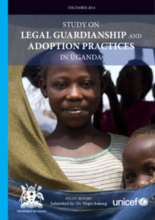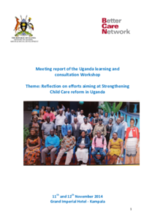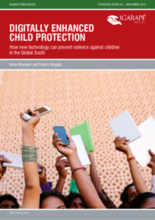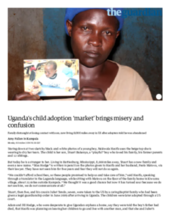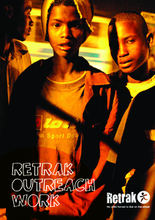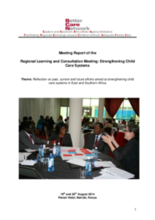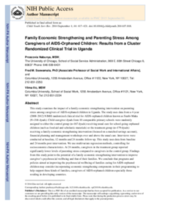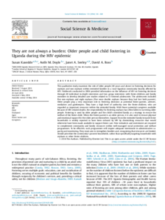This country page features an interactive, icon-based data dashboard providing a national-level overview of the status of children’s care and care reform efforts (a “Country Care Snapshot”), along with a list of resources and organizations in the country.
demographic_data
childrens_living_arrangement
children_living_without_bio
social_work_force
key_stakeholders
Key Stakeholders
Add New DataOther Relevant Reforms
Add New Datadrivers_of_institutionalisation
Drivers of Institutionaliziation
Add New Datakey_research_and_information
Key Data Sources
Add New DataThe Children Act (Uganda)
Country Care Review: Uganda
Prevalence and number of children living in institutional care: global, regional, and country estimates
The National Integrated Early Childhood Development Policy Action Plan (2016-2021) of Uganda
Catholic Care for Children in Uganda: A Family for Every Child - Findings from a Midterm Evaluation
Acknowledgements
Data for this country care snapshot was contributed by a consultant with the Data for Impact (D4I) Project at Palladium Group LLC.
Displaying 321 - 330 of 418
This study on legal guardianship and adoption practices in Uganda was designed to explore and get insight into current care practices.
As part of its Eastern and Southern Africa Regional Initiative, BCN, along with the Ministry of Gender, Labour and Social Development (MGLSD) and the National Child Protection Working Group (CPWG) – an interagency platform of national child protection stakeholders - convened a national consultative workshop on 11 and 12 November 2014. This report from the workshop presents the priorities for action identified by the workshop participants, including: strengthening capacity for family strengthening and alternative care, evidence building and sharing, and strengthening advocacy.
This Strategic Paper, from the Igarapé Institute, reviews emerging capabilities of information and communication technologies (ICTs) to prevent violence against children in the Global South.
The Advancing Partners & Communities (APC) project invites qualified organizations to submit proposals for an independent performance evaluation of a child care reform project that will be implemented in Uganda by a consortium of non-governmental organizations led by ChildFund International. One Fixed Price Contract is anticipated to be awarded under this Request for Proposals (RFP).
Family distraught at losing contact with son, now living 8,000 miles away in US after adopters told he was abandoned
In this paper, Retrak outlines its approach to conducting outreach work with children living and working on the streets.
Following a consultative mapping, a regional learning meeting took place on 19-20 August 2014 in Nairobi, Kenya. The theme of this meeting was "Reflection on past, current and future efforts aimed at strengthening child care systems in East and Southern Africa."
This study examines the impact of a family economic strengthening intervention on parenting stress among caregivers of AIDS-orphaned children in Uganda.
L’Ouganda ne protège pas les enfants sans domicile fixe des violences et autres abus commis par la police a déclaré Human Rights Watch. Les enfants des rues dans divers centres urbains de l'Ouganda sont exposés à la maltraitance ainsi qu'aux violences physiques et sexuelles. Les autorités nationales et locales devraient cesser d’organiser des descentes de police visant ces enfants, tenir les forces policières et d'autres individus responsables en cas de passage à tabac, et faciliter l'accès de ces enfants aux services d'éducation et de santé.
This qualitative study examines the role of older people (60 years and above) in fostering decisions for orphans and non-orphans within extended families in a rural Ugandan community heavily affected by HIV.

